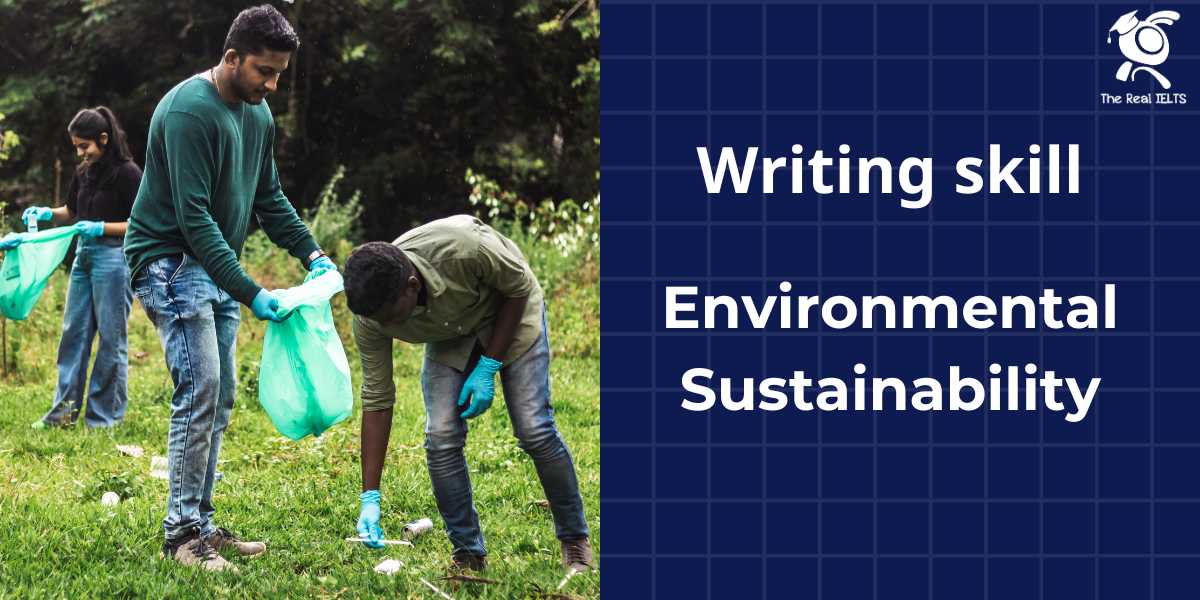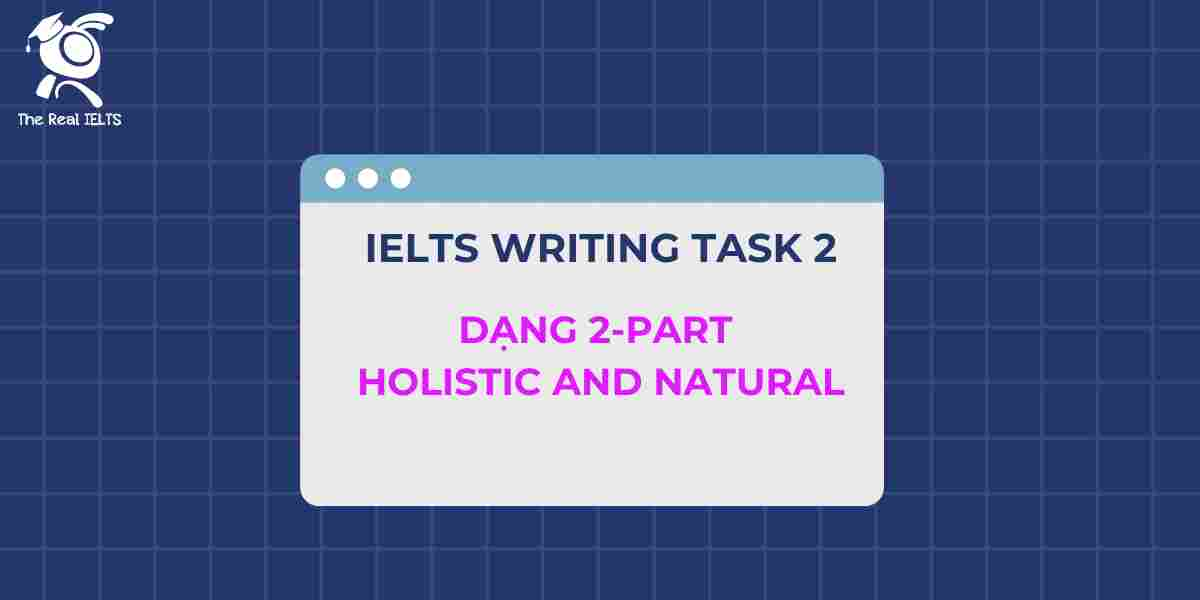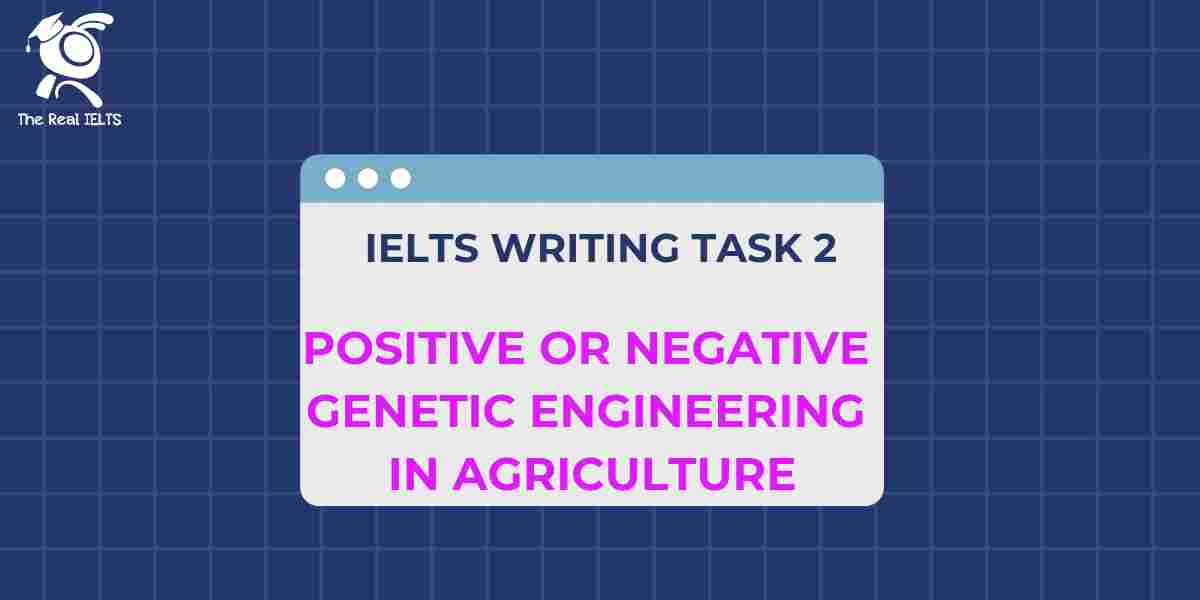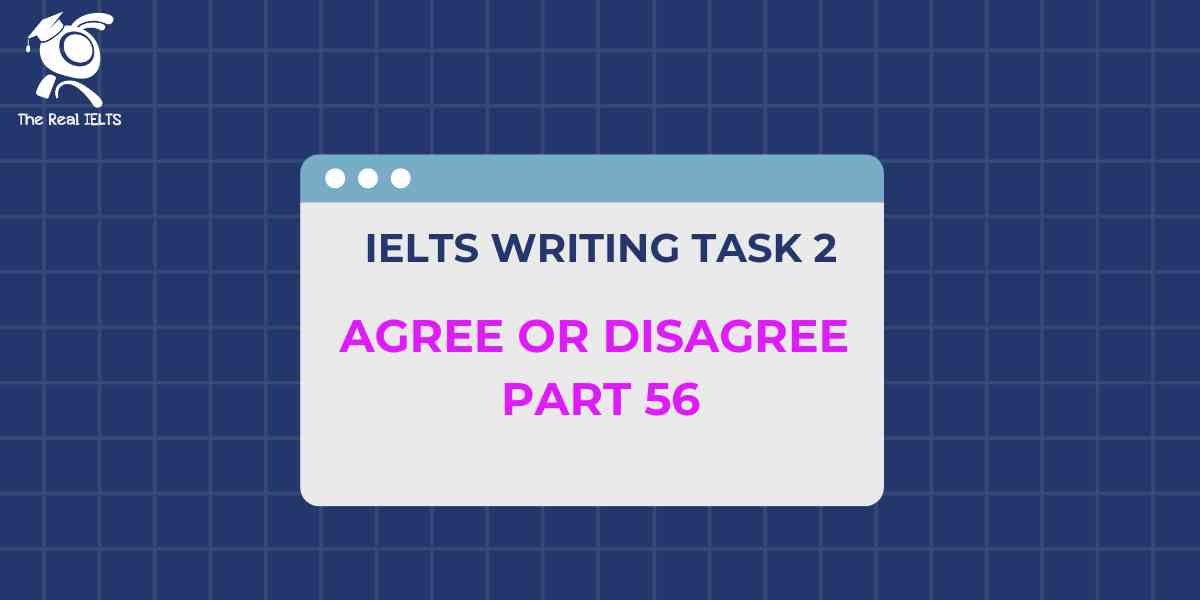Bài Writing về chủ đề môi trường (Environmental Sustainability) là chủ đề được sử dụng thường xuyên trong nhiều năm. Chính vì vậy với chủ đề ảnh hưởng của hành động cá nhân tới môi trường cũng chính là một chủ đề mà các bạn có thể phải gặp phải trong các kỳ thi.
Dàn ý Writing Environmental Sustainability: Individual Actions, Global Impact
I. Introduction
A. Definition of environmental sustainability
B. Importance of individual actions in achieving sustainability
C. Thesis statement: Individual actions play a crucial role in promoting environmental sustainability and have significant global impacts.
II. Individual Actions at Home
A. Reduce, reuse, recycle: The three Rs
B. Energy conservation: Using renewable energy sources, reducing energy consumption
C. Water conservation: Limiting water usage, fixing leaks
D. Sustainable transportation: Using public transport, cycling, carpooling
E. Sustainable food choices: Eating locally sourced and seasonal foods, reducing meat consumption
III. Individual Actions in Communities
A. Advocacy and education: Spreading awareness about environmental issues
B. Participating in local environmental initiatives: Clean-up events, tree planting
C. Supporting sustainable businesses and products
D. Community gardening and urban farming projects
IV. Individual Actions in the Workplace
A. Implementing sustainable practices: Recycling programs, energy-efficient lighting
B. Encouraging telecommuting and carpooling among employees
C. Promoting paperless offices and digital documentation
D. Supporting environmentally friendly suppliers and vendors
V. Global Impact of Individual Actions
A. Cumulative effect of small individual actions
B. Influence on corporate and government policies
C. International collaboration and initiatives
D. Case studies of successful individual-led environmental movements
VI. Challenges and Solutions
A. Overcoming individual barriers: Lack of awareness, convenience, and affordability
B. Policy interventions to support individual actions
C. Harnessing technology for sustainable solutions
D. Encouraging collective responsibility and community engagement
VII. Conclusion
A. Restate the importance of individual actions for environmental sustainability
B. Emphasize the global significance of individual contributions
C. Call to action: Encourage readers to take small steps towards sustainability in their daily lives.
Triển khai bài viết
Environmental Sustainability: Individual Actions, Global Impact
Introduction: Environmental sustainability, the practice of conserving natural resources and protecting the planet for future generations, has become an increasingly urgent concern in today’s world. While governments and corporations play pivotal roles in shaping environmental policies and initiatives, the actions of individuals also wield significant influence. This essay explores the crucial role of individual actions in promoting environmental sustainability and the profound global impact they can have.
Individual Actions at Home: At the heart of environmental sustainability lie the everyday choices made within the confines of our homes. By adhering to the principles of “reduce, reuse, recycle,” individuals can minimize waste production and conserve valuable resources. Simple habits such as turning off lights when not in use, unplugging electronic devices, and opting for energy-efficient appliances contribute to reducing energy consumption and carbon emissions. Moreover, conscious efforts to limit water usage, fix leaks, and adopt sustainable transportation options like public transit or cycling further enhance individual contributions to environmental preservation. Embracing sustainable food choices, such as consuming locally sourced and seasonal foods while reducing meat intake, also significantly reduces one’s ecological footprint.
Individual Actions in Communities: Beyond individual households, communities serve as hubs for collective environmental action. Through advocacy and education initiatives, individuals can raise awareness about pressing environmental issues and inspire others to adopt sustainable practices. Participation in local environmental projects, such as community clean-up events and tree planting drives, fosters a sense of environmental stewardship and promotes a cleaner, greener neighborhood. Supporting sustainable businesses and products through conscious consumer choices reinforces the demand for eco-friendly alternatives and encourages market-driven environmental solutions. Additionally, community gardening and urban farming projects not only promote food security but also foster a deeper connection to nature and sustainable living practices.
Individual Actions in the Workplace: Workplaces represent another arena where individual actions can significantly impact environmental sustainability. Implementing sustainable practices within office settings, such as instituting recycling programs and utilizing energy-efficient lighting, reduces resource consumption and lowers carbon emissions. Encouraging telecommuting and carpooling among employees not only reduces traffic congestion but also minimizes the environmental impact of daily commutes. Furthermore, promoting paperless offices and digital documentation reduces paper waste and promotes the efficient use of resources. By choosing to support environmentally responsible suppliers and vendors, businesses can further align their operations with sustainability goals and contribute to positive environmental change.
Global Impact of Individual Actions: While individual actions may seem small in isolation, their collective impact on a global scale cannot be understated. The cumulative effect of millions of individuals adopting sustainable practices translates into significant reductions in carbon emissions, resource consumption, and environmental degradation. Moreover, individual actions exert pressure on corporations and governments to prioritize sustainability in their policies and practices. International collaboration and grassroots movements driven by individuals have led to landmark agreements and initiatives aimed at addressing global environmental challenges, such as the Paris Agreement on climate change.
Challenges and Solutions: Despite the potential of individual actions to drive positive change, several challenges persist. These include barriers such as lack of awareness, convenience, and affordability. Overcoming these obstacles requires a multifaceted approach that combines education, policy interventions, and technological innovations. Governments can play a crucial role in supporting individual actions through incentives, subsidies, and regulations that promote sustainability. Harnessing technology for sustainable solutions, such as renewable energy technologies and smart resource management systems, can also empower individuals to lead more environmentally conscious lives. Ultimately, fostering a sense of collective responsibility and community engagement is essential for overcoming challenges and achieving long-term environmental sustainability.
Conclusion: In conclusion, individual actions serve as the cornerstone of environmental sustainability, with far-reaching implications for the health of our planet. By making conscious choices in our daily lives, we can collectively mitigate environmental degradation and safeguard the Earth for future generations. The global impact of individual actions underscores the power of each individual to effect positive change and underscores the urgency of collective action in addressing pressing environmental challenges. As we navigate the complexities of the 21st century, let us embrace our roles as stewards of the environment and work together towards a more sustainable and resilient future.
Từ vựng bạn gặp trong bài
- Environmental sustainability – Bền vững môi trường
- Conservation – Bảo tồn
- Natural resources – Tài nguyên tự nhiên
- Urgent concern – Vấn đề cấp bách
- Governments – Chính phủ
- Corporations – Công ty
- Individual actions – Hành động cá nhân
- Global impact – Ảnh hưởng toàn cầu
- Reduce, reuse, recycle – Giảm, tái sử dụng, tái chế
- Waste production – Sản xuất rác thải
- Carbon emissions – Khí thải carbon
- Water usage – Sử dụng nước
- Sustainable transportation – Phương tiện giao thông bền vững
- Conscious efforts – Nỗ lực ý thức
- Sustainable food choices – Lựa chọn thực phẩm bền vững
- Advocacy – Sự ủng hộ
- Education initiatives – Sáng kiến giáo dục
- Clean-up events – Sự kiện dọn dẹp
- Tree planting drives – Chiến dịch trồng cây
- Eco-friendly alternatives – Các lựa chọn thân thiện với môi trường
- Environmental stewardship – Người phụ trách môi trường
- Resource consumption – Tiêu thụ tài nguyên
- Carbon emissions – Khí thải carbon
- Traffic congestion – Tắc nghẽn giao thông
- Paperless offices – Văn phòng không giấy
- Digital documentation – Tài liệu số
- Environmental degradation – Suy thoái môi trường
- Multifaceted approach – Phương pháp đa mặt
- Incentives – Sự khích lệ
- Subsidies – Tiền trợ cấp
- Regulations – Quy định
- Renewable energy technologies – Công nghệ năng lượng tái tạo
- Smart resource management systems – Hệ thống quản lý tài nguyên thông minh
- Collective responsibility – Trách nhiệm tập thể
- Community engagement – Sự tham gia của cộng đồng
- Stewards of the environment – Người gìn giữ môi trường
- Resilient future – Tương lai mạnh mẽ
Ngữ pháp đã sử dụng trong bài Writing
- Động từ và cụm động từ:
- Play pivotal roles
- Wield significant influence
- Can have
- Adhering to
- Opting for
- Fosters a sense
- Can significantly reduce
- Serve as
- Foster a deeper connection
- Exert pressure on
- Câu bị động:
- Can be understated
- Is essential
- Câu điều kiện:
- Despite the potential
- Requires a multifaceted approach
- Can also empower
- Is essential for
- Câu mệnh lệnh và yêu cầu:
- Embrace our roles
- Work together
- Liên từ:
- While
- Beyond
- Moreover
- Additionally
- Despite
- Furthermore
- Although
- Danh từ và cụm danh từ:
- Environmental sustainability
- Everyday choices
- The heart of
- Sustainable practices
- Community clean-up events
- The cumulative effect
- Landmark agreements
- Tính từ và cụm tính từ:
- Urgent concern
- Everyday choices
- Simple habits
- Sustainable transportation
- Conscious efforts
- Sustainable food choices
- Eco-friendly alternatives
- Multifaceted approach
- Cấu trúc phức hợp:
- By adhering to the principles of
- Beyond individual households
- Through advocacy and education initiatives
- Despite the potential of individual actions
Đọc lại bài Writing cũ: Writing skill part 6: The Art of Persuasive Writing: Crafting Compelling Arguments.















